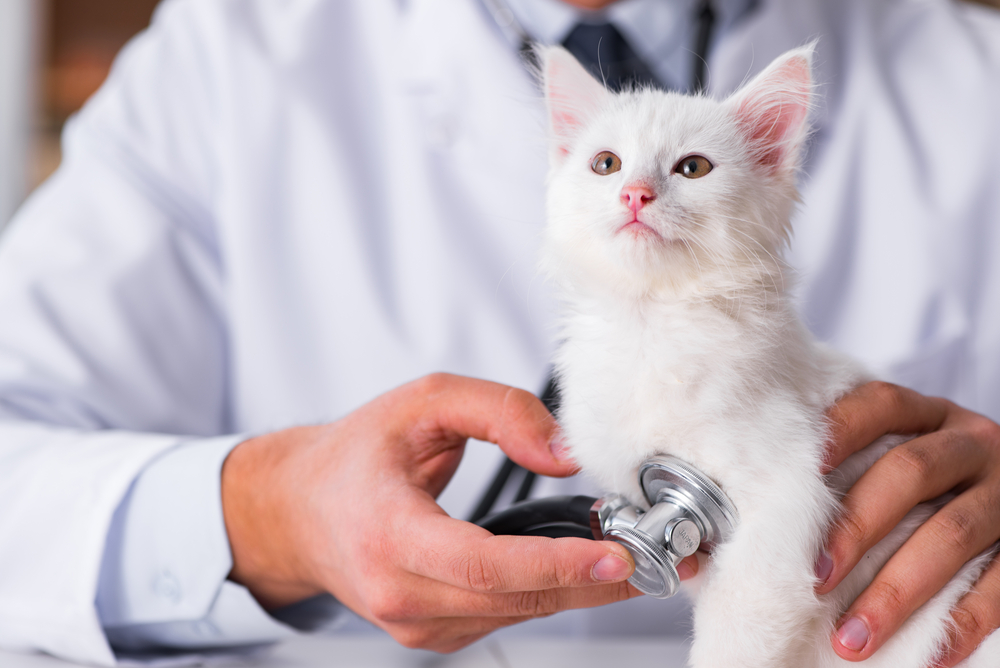Regular wellness screenings for pets are recommended every six to 12 months, and are important at every life stage to prevent certain conditions and detect issues early when they are easier to treat and manage. Our team at Driftwood Animal Hospital wants to explain why these visits are so important to your pet’s health and wellbeing.
Regular wellness screenings are important for puppies and kittens
Puppies and kittens should be evaluated by a veterinary professional several times during their first year. Wellness visits for puppies and kittens include:
- Vaccinations — Puppies and kittens should start receiving vaccines when they are 6 to 8 weeks old, and will need boosters every three to four weeks until they are 16 to 20 weeks old. These vaccinations are important to protect your pet from serious illnesses. Not every pet needs every vaccine, and our veterinary professionals will formulate a vaccination protocol tailored to your pet’s unique lifestyle.
- Parasite treatments — Parasites are common in puppies and kittens, and the infections can cause health issues such as anemia, gastrointestinal problems, and a failure to thrive. Your pet’s feces are tested to determine what parasites are present, and they are dewormed with the appropriate medication.
- Spay and neuter procedures — Spaying or neutering your pet early can protect them from certain cancers and infections, and also reduce their risk of exhibiting undesirable behaviors such as urine marking and aggression. Our veterinary professionals will determine the best timing for your pet’s procedure based on their breed.
- Proper socialization — Introducing your young pet to as many new people, pets, and experiences as possible in the first few months of their life is important to properly socialize them and help them become well-adjusted, well-behaved adult pets. If you’re concerned about any behavioral problems your puppy or kitten is exhibiting, we will offer advice to help address these issues.
Regular wellness screenings are important for adult pets
Pets are excellent at masking illness. This tendency means they may not show signs indicating a health problem until the condition is advanced. Yearly wellness screenings help detect these issues early when conditions are easier to treat. Wellness visits for adult pets include:
- Weight evaluation — Obesity is a common problem in U.S. pets, and predisposes them to serious health issues such as cancer, diabetes, kidney disease, and arthritis. We will assess your pet’s weight and body conditioning score to determine if they are at a healthy weight, and devise a safe weight loss program if they are overweight.
- Physical exam — We will examine your pet from head to tail to check for abnormalities. Conditions we can detect as part of a routine physical exam include cataracts, heart murmurs or arrhythmias, abdominal masses, and joint pain. If we detect an abnormality during a physical examination, further diagnostics may be recommended to adequately assess the issue.
- Dental assessment — Dental disease affects most pets by the time they reach 3 years of age. Food particles left after a meal attract bacteria that accumulate on your pet’s teeth. These bacteria invade under the gumline to damage the supporting tooth structures, causing loose, painful teeth, missing teeth, and tooth root abscesses. In addition, these bacteria can damage organs, such as your pet’s kidneys, heart, and liver, if they enter their bloodstream. If we determine your pet has dental disease, we may suggest a professional veterinary cleaning to address the problem.
- Complete blood count (CBC) — A CBC evaluates your pet’s red blood cells, white blood cells, and platelets to detect conditions such as anemia, infection, inflammation, and certain cancers.
- Biochemistry profile — This blood test evaluates several body systems to detect conditions such as electrolyte imbalances, kidney disease, and liver disease.
- Urinalysis — Urine factors, such as content, concentration, pH, and color, are evaluated to detect issues including diabetes, urinary crystals, and kidney disease.
- Fecal check — Your pet’s feces are evaluated to ensure they remain parasite free.
Regular wellness screenings are important for senior pets

Once your pet reaches their senior years, they should be evaluated by a veterinary professional every six months. Pets age faster than humans, and cats and small dogs are considered senior at about 7 years of age; large breed dogs reach their senior years at around 5 to 6 years of age. Wellness visits for senior pets include:
- Physical exam — We perform a thorough physical exam, and since senior pets are at higher risk for conditions such as arthritis, kidney disease, and heart disease, we may recommend additional screening tests to check for these problems.
- Diagnostics — In addition to the routine diagnostics performed, thyroid screenings may be recommended since senior pets are at higher risk for thyroid disease.
- Cognitive assessment — Cognitive dysfunction is a condition similar to Alzheimer’s disease in humans that commonly affects senior pets. Signs include confusion, disorientation in familiar surroundings, an inability to recognize family members, house soiling, increased anxiety, vocalization at night, and decreased self-grooming. We will ask questions about your home life and assess your pet to determine if they are affected so we can develop a plan to manage the condition if necessary.
Regular wellness screenings are important for every pet at every life stage. If you would like to schedule a wellness visit for your pet, contact our team at Driftwood Animal Hospital so we can help improve their health and wellbeing.








Leave A Comment